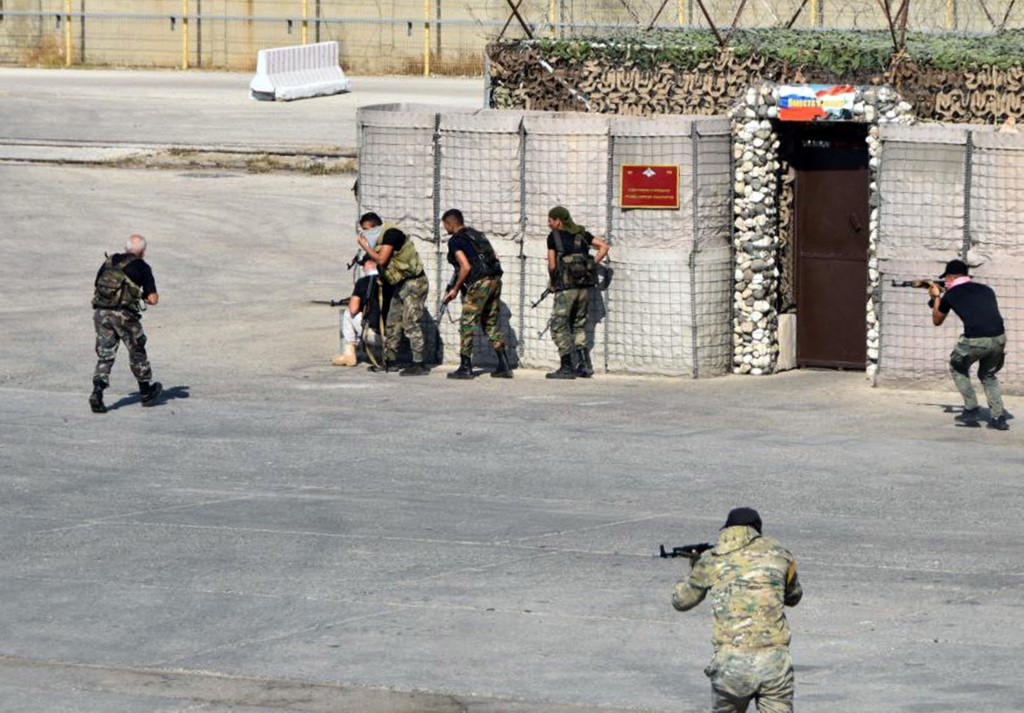European countries are considering the possibility of sending military forces to Ukraine to ensure compliance with a potential ceasefire agreement, according to reports from NATO sources and various media outlets.
In Paris and London, policymakers are preparing different scenarios for future political involvement in the ongoing war in Ukraine and ways to support Kyiv in case new US leadership fully reshapes its foreign policy and reduces aid to Kyiv.
JOIN US ON TELEGRAM
Follow our coverage of the war on the @Kyivpost_official.

Radio Liberty revealed that discussions are underway about deploying French and British troops to monitor the demarcation line as one possible scenario. However, these talks are reportedly taking place in individual European capitals, not at the NATO level.
Reports from Deutsche Welle echo similar possibilities, suggesting that European countries could deploy forces or private military companies to enforce a potential ceasefire agreement.
Despite the discussions, the idea of deploying troops to Ukraine faces opposition from several European nations, particularly Germany.
French President Emmanuel Macron and Foreign Minister Jean-Noel Barraud have spoken publicly about the option, but consensus among European allies remains elusive.

Global Threats May Increase if Kyiv Signs ‘Bad’ Peace Deal with Russia, Rutte Warns Trump
Meanwhile, President Volodymyr Zelensky has emphasized the importance of NATO’s role in securing peace.
In a recent Sky News interview, he proposed that a ceasefire could be achieved if NATO extends protection to territories under Kyiv's control. This move, he suggested, could temporarily resolve the war, allowing for future diplomatic efforts to reclaim Russian-occupied regions.
Zelensky emphasized the urgency of bringing unoccupied Ukrainian lands under NATO’s umbrella while acknowledging that eastern areas currently under Russian control might remain outside of the remit of such a deal for now.
However, both Reuters and Deutsche Welle report a lack of consensus among NATO members regarding Ukraine’s potential membership in the alliance.
Kyiv Pushes NATO For Invite
Ukraine insisted Tuesday, Dec. 3, that NATO membership was the only “real guarantee” for its security as foreign ministers from the alliance looked set to rebuff Kyiv’s push for an invite ahead of Donald Trump’s return to the US presidency.
“We are convinced that the only real guarantee of security for Ukraine, as well as a deterrent to further Russian aggression against Ukraine and other states, is Ukraine’s full membership in NATO,” the foreign ministry in Kyiv said.
The statement, which also marked the 30th anniversary of the Budapest Memorandum, categorically rejected any alternative security arrangements.
The Foreign Ministry criticized past security agreements, including the Budapest Memorandum, which it called a “monument to short-sightedness in strategic security decision-making.”
This agreement, signed in 1994, committed Ukraine to give up its nuclear arsenal in exchange for assurances of territorial integrity – assurances that, Kyiv pointed out, failed to prevent Russian aggression.
“With the bitter experience of the Budapest Memorandum behind us, we will not accept any alternatives, surrogates or substitutes for Ukraine's full membership in NATO,” it said.
You can also highlight the text and press Ctrl + Enter






